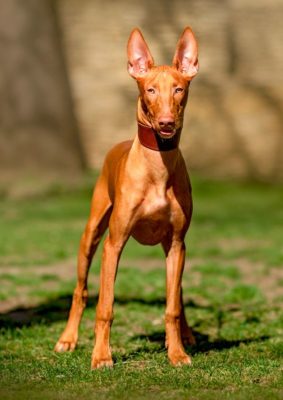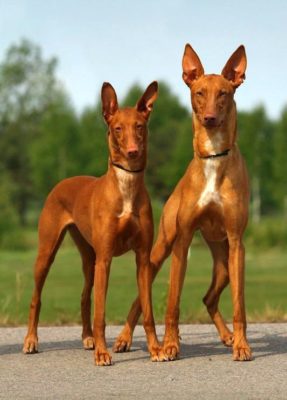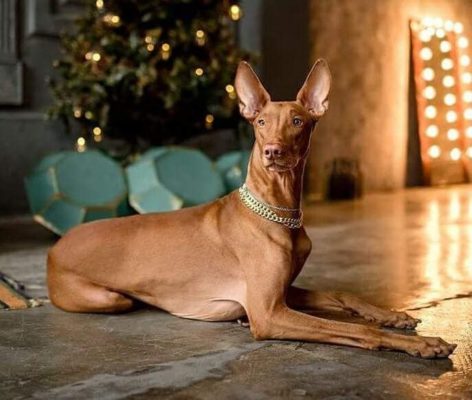Pharaoh Hound
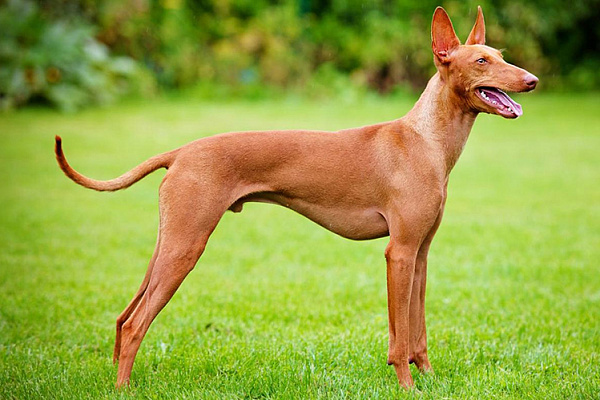
Despite its somewhat intimidating appearance, the Pharaoh Hound is a lovable creature. Representatives of the breed are characterized by kindness, openness to the owner and family members. To strangers, animals are treated with distrust, caution, and indifference. Four-legged dogs are very energetic; they like long walks with physical activity and active games.
Table of Contents
Breed Information
| Another Name | Kelb tal-Fenek |
| Origin | Malta |
| Height | Males 55-63 cm Females 53-61 cm |
| Weight | 18-27 kg |
| Fur | Short |
| Color | Yellow-brown |
| Lifespan | 11-14 years |
| FCI Classification | Spitz and primitive types |
| Group | Dogs for kids, hunting dogs |
| Price | $1000-1500 |
Breed Photos
Origin History
The Pharaoh’s dog first appeared in Malta – it was brought there by Phoenician merchants. The breed is related to Egypt, as the animal got its name because of its appearance. The outlines of its face and body are similar to the drawings in the tombs of pharaohs. Some researchers have an opinion that the Pharaoh Hound is a descendant of the Egyptian tesem.
In 1974 the first standard of this breed, recognized by the British Kennel Club, appeared. The Pharaoh Hound belongs to the hound – the animal shows excellent results during the hunt.
Appearance
Representatives of this breed tend to gain muscle mass but not fat. Males are larger than females. Four-legged dogs with a lean build, with a long neck and paws. Dogs with an elongated muzzle, standing pointed ears, and long tapering tails. They have a short, red coat, which allows them to be kept in apartments. When viewed in profile, it resembles the Egyptian god Anubis.
Character
Despite its somewhat intimidating appearance, the Pharaoh Hound is a lovable creature. Representatives of the breed are characterized by kindness, openness to the owner and family members. To strangers, animals are treated with distrust, caution, and indifference. Four-legged dogs are very energetic; they like long walks with physical activity and active games.
The Pharaoh dog is curious and enjoys getting to know other animals and people. The pet does not show aggression to others unless there is a good reason for it. Representatives of the breed have a high level of intelligence and training abilities. Excellent obedience is supported by the four-legged dog’s desire to please the owner.
With early socialization, it is realistic that the dog will get along with a cat, but hunting instincts will not allow you to make friends with rodents. These animals have a very sensitive psyche; they understand the owner’s mood and the relationship between family members. Domestic quarrels between people affect dogs as stress.
Care
The Pharaoh Hound’s short, smooth coat makes it easy to care for. Bathe your pet once or twice a week and comb it regularly. Keep an eye and ears clean and clean them when dirty.
Claws should be trimmed once every ten days if they are not chipped on the pavement during walks. The Pharaoh Hound is a healthy animal, so it does not get sick if cared for properly. Wear overalls when walking the four-legged dog during the cold season.
Training
Representatives of the breed quickly memorize any commands from elementary to special. It is important not to break the regularity of training and lessons. The only problem you may encounter is the difficulty of concentrating on the animal. In this case, reduce the time of intellectual activity.
The strictness with a Pharaoh Hound is unnecessary because they are obedient. Don’t raise your voice or use physical force on your pet. Yelling or hitting your dog will either shut him down or become aggressive. Praise your four-legged dog for his achievements and successes as an extra incentive to obey.
Common Diseases
Pharaoh Hound is an animal with good health and immunity. But sometimes there are such diseases:
- dislocation of knee joints;
- eye disease;
- hip dysplasia.
The ailments listed above are most often inherited. The Pharaoh Hound is very hardy but very sensitive to anesthetics. The latter is due to the small amount of subcutaneous fat.
Nutrition
A balanced diet plays an important role in your dog’s health. Eat foods that are high in protein and carbohydrates. Make sure it has enough vitamins to maintain its immune system.
Pharaoh Hound can be fed both ready-made mixes and natural food. In the second case, give porridge, meat, fresh fruits, vegetables, and dairy products. It is vital to feed the animal cottage cheese to prevent the development of possible hereditary diseases.
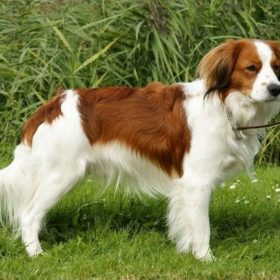 Kooikerhondje
Kooikerhondje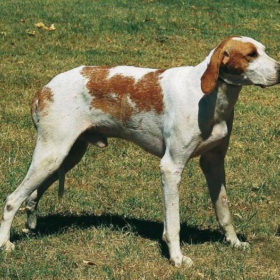 Grand Anglo-Français Blanc et Orange
Grand Anglo-Français Blanc et Orange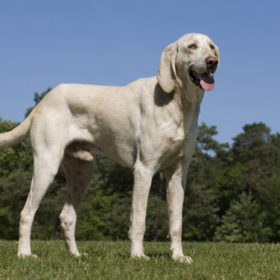 Billy
Billy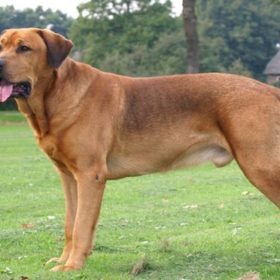 Broholmer
Broholmer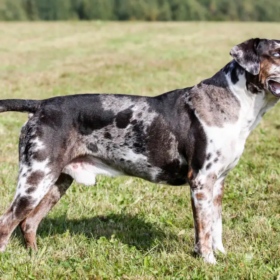 Catahoula Leopard Dog
Catahoula Leopard Dog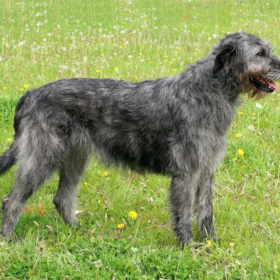 Irish Wolfhound
Irish Wolfhound